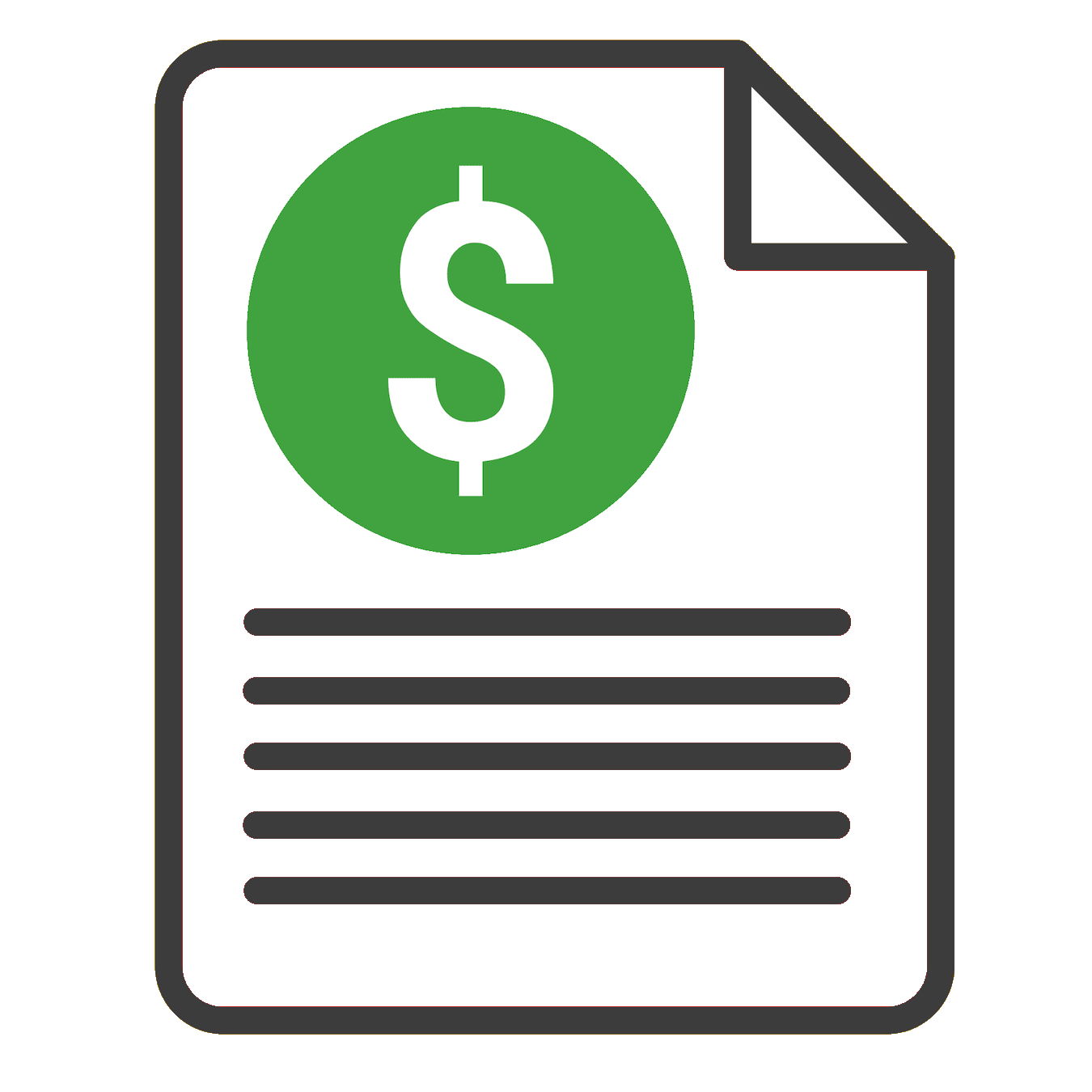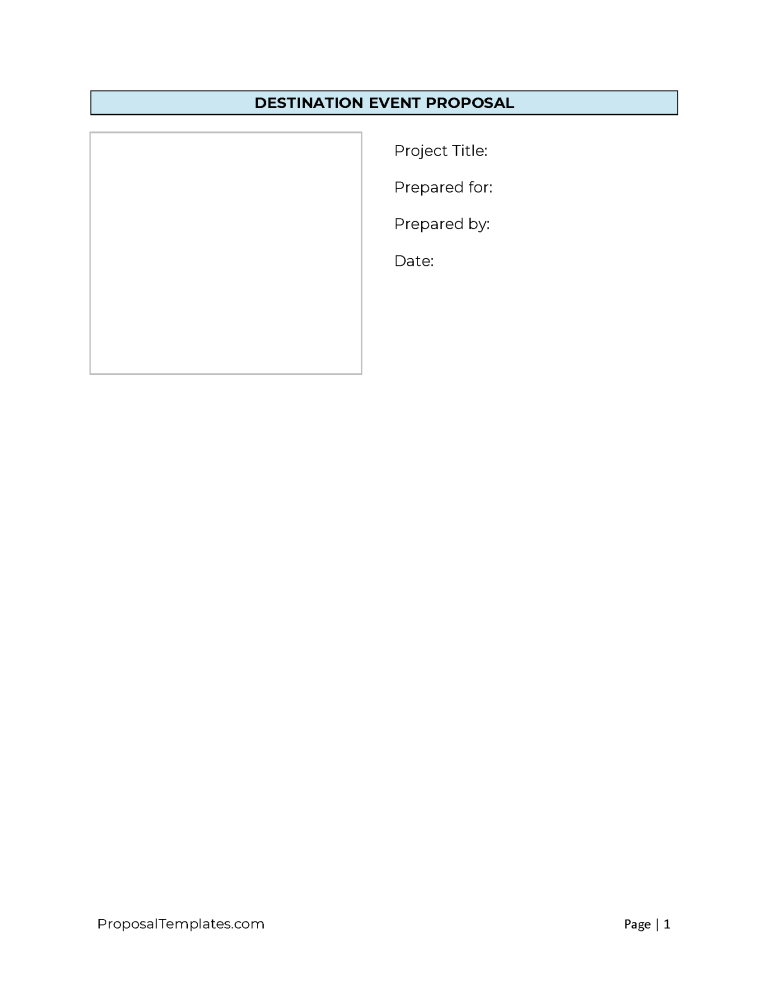Destination event proposals are developed to attract sponsors, clients, or event planners and are thus considered a versatile contact tool. Regardless of the recipient, this proposal heavily emphasizes the benefits of a specific destination for an event.
Types Of Destination Event Proposals (12)
- Adventure Race/Expedition – This proposal explains the logistics and safety for events requiring physical endurance (i.e., survival challenge).
- Adventure or Sports Event – A destination proposal focusing on participant physical activity, thus discussing logistics and safety.
- Charity or Nonprofit Event – This proposal features outreach strategies, destination appeal, and logistics for mission events (i.e., fundraising).
- Corporate Retreat or Incentive Trip – Proposals specifically promoting an event planner’s travel and team-building strategies.
- Cultural or Festival Event – A proposal with attractive sections on cultural experiences (i.e., performances, culinary) at an event.
- Destination Conference – A proposal centered on a conference being held, thus detailing accommodations and unique experiences.
- Destination Event Promotion – This proposal heavily emphasizes an event’s concept and itinerary as well as its accommodations.
- Destination Wedding – A proposal discussing the travel arrangement expertise because the client(s) will wed in a unique destination.
- Educational/Cultural Exchange – A proposal containing a substantial discussion on event activities specifically developed for educational purposes.
- Tourism Promotion Event – Proposals highlighting marketing and partnership opportunities often generated by a tourism board or destination marketing organizations.
- Travel Package – Proposals, often used by travel agencies, combining event attractions and incentives into a single package rate.
- Wellness or Health Retreat – This proposal details events themed with self-care, such as spa treatments.
1. Destination Event Cover Page
Develop an attractive proposal design, then identify the destination event by name, calendar date, and location on the first page. Also, include the name and logo of the event planner or organizer.
- Title Of Destination Event
- Destination, Event Date(s), Event Time(s)
- Destination Event Organizer, Event Organizer Logo
- Destination Event Planner, Event Planner Logo
- Legal Statements, Graphic Design, Visuals
2. Title Page
Expand upon the cover page’s information by further defining the event and organizing parties in addition to their contact information. Keep the graphic design of the proposal consistent with the cover page, but consider its aesthetics and legibility a priority.
- Title Of Destination Event, Location, Dates/Times
- Organizer’s Name, Proposal Title, Proposal Number
- Date Of Submission, Proposal Author, Contact Information
- Table Of Contents, Graphic Design, Logos
- Legal Statements/Information, Copyright Information
3. Introduction
Set a positive tone for the proposal while introducing its main points or focus and the destination event. It is important that the recipient understands the purpose of this proposal and the sender’s enthusiasm for working with them.
- Positive Greeting, Event Title, Background Information
- Organizer/Event Planner Introduction, Objectives
- Destination Appeal, Sponsorship Benefits (If Applicable)
- Destination Event Theme, Mission, Concept
- Call To Action (CTA), Selling Points, Recipient Goals
4. Executive Summary
Comprehensively describe what the recipient can expect in this proposal, such as the logistics in destination planning. Also, make a deliberate effort to sell the event’s objectives and expected benefits to the recipient.
- Overview, Destination Information
- Concept, Itinerary, Accommodations
- Transportation, Budget, Event Promotion
- Health And Safety, Participant Experience
Terms And Conditions, Appendices, Contact Information
5. Destination Event Overview
Put the event in context for the recipient by specifically applying its purpose to the community, participants, and the proposal recipient. It is equally important to show the importance of the destination’s choice in this section.
Official Event Title, Location, Dates/Times
- Purpose, Attendee Demographics, Target Audience
- Highlights, Themes, Destination Appeal, Stakeholders
Travel Information, Local Attractions, Accommodations
- Pricing/Budgeting, Duration, Scheduling, Itinerary, CTA
6. Destination Information
Describe the event’s destination in detail while promoting the location choice. For example, mention the local attractions, conveniences or amenities available to attendees, and the climate’s benefits to the event.
- Geographic Location, Significance To Event, History
- Transporation, Accessibility, Accommodations, Maps
- Main And Alternate Event Venues, Weather/Climate
- Local Attractions, Catering, Cultural Considerations
- Transportation (Inside Event), Local Support Services
7. Destination Event Concept
Explain the theme of the event as well as how this plays well with the destination choice. Incorporate a specifically worded discussion on the experience the event concept can deliver to the audience or attendees.
- Event Theme, Concepts, Reasoning, Narrative
Visual Identity, Set Designs, Decor, Atmosphere
- Entertainment, Audience Interaction, Event Flow
- Culinary Concepts, Destination Features, Dress Codes
- Timeline/Schedules, Sustainability
8. Itinerary
A detailed schedule of activities and events, including pre-event, during-event, and post-event activities. This may include excursions, workshops, meals, and entertainment.
- Greetings, Registration Process, Social Gatherings
Daily Schedule Breakdown, Destination Activities, Awards
- Keynote Speakers, Sessions, Entertainment, Social Media
- Catering, Networking Opportunities, Maps, Hash Tags
- Free Time, Cultural Experiences, Emergency Contacts
9. Accommodations
Describe where the attendees shall stay during the event dates since this will often be a destination that requires attendee travel. For instance, cover subjects such as pricing, proximity, and all hospitality options that will be available.
- Overview, Recommended Hotels/Motels/Lodges
- Group Rate Options, Room Types, Booking/Reservations
- Alternative Accommodations, Services, Amenities
- Check-Ins/Check-Outs, Transportation Options
- Parking, Guest Support, Room Block Management
10. Transportation
Layout the transportation options available to the attendees, such as shuttles, public transportation, and driving directions. In essence, assure the proposal recipient that attendees can access the event easily.
- Locations, Transportation Options, Weather Considerations
- Air-Travel, Ground Transportation, Travel Routes
- Local Transportation, Parking Information
- Discounts/Incentives, Visa Entry Requirements
- Travel Insurance, Advice, Arrival Instructions
11. Financial Informaton
Present the financial considerations taken into account for the destination so the recipient can review this information. Consider it imperative to the proposal’s success to provide an especially transparent line-by-line report.
- Budget Overview, Estimated Cost, Legal Considerations
- Itemized Expenses, Travel Costs, Financial Policies
- Accommodation, Meals/Dining, Payment Process
- Transportation, Registration, Contingency Plans
- Funding Source(s), Budget Justification, Taxes
12. Event Promotion
Discuss the strategies used to market the event to the public as well as any necessary sponsors. It is important that a detailed plan of the event’s promotional efforts is provided in this section.
- Target Audience, Website, Online Registration
- Marketing Strategies, Email Campaign, Monitoring
- Digital Marketing, Content, Marketing Collateral
- Social Media, Traditional Advertising, Analytics
- Landing Pages, PR/Media Outreach
13. Safety Measures
Present the venue logistics by detailing items such as the setup requirements, capacity, location, delivery specifics, and floor plans. Also, the event planner’s suggestions and opportunities should be presented if the venue has not been settled.
- Health And Safety Introduction, Local Compliance
- COVID-19 Guidelines, Emergency Response Contingency
- Health Screening, Sanitization, Social Distance Regulations
- Hygiene Policies, Mask/PPE Requirements, Venue Capacity
- Food/Beverage Safety, Accessibility, Communication Plan
14. Participant Experience
Present all activities, environment considerations, and package options developed so that the attendees have a positive and memorable experience. It is vital that the recipient is convinced and impressed with the activities occurring during the event.
- Participant-Centered Approach, Personalized Experience
- Programs, Agenda, Scheduling, Accessibility, Social Media
- Presentations, Interactions, Engagement Tools
- Themed Experiences, Networking Opportunities
Attendee Support, Recognition, Participant
15. Testimonials And References
Provide social and professional evidence of particularly successful past events. That is, document the positive impressions that previous event employees, participants, and attendees have volunteered.
- Testimonials, Quotes, Excerpts
- Case Studies, Industry Recognition
- Video, Media, Photographs
- References, Success Stories
- Branding, Logo, Permissions/Consent
16. Terms And Conditions
Dispense the legal documents together with specifically worded explanations for each one. For example, liability waivers, cancellation policies, payment terms, and contractual obligations should all be spelled out.
- Event Registration, Payment Policies, Cancellation Policies
- Refund Requirements, Substitutions, Contact Information
- Privacy, Data Security, Data Handling, Venue Rules
- Liability, Indemnification, Codes of Conduct
- Event Modifications, Acceptance Signatures
17. Appendices
Organize a section of difficult-to-manage documents such as maps. Additionally, any supplementary information and supporting documents should be gathered in this area.
- Supporting Research Data, Test Results, Maps
- Speaker Presentations, Industry Certification, Calendars
- Survey/Feedback Templates, Endorsements, Media
- Venue Agreements, References, Sponsorship Packages
- Sample Event Reports, Marketing Collateral, Legal Documents
18. Contact Information
Document every contact person relevant to the event as well as this proposal. Make it especially easy for the recipient to initiate contact so that this proposal may move to the next step.
- Primary Contact Person
- Event Organizer Contact Information
- Registration And Attendee Services Contact
- Media/Public Relations, Technical Support, IT Contact
- Social Media Pages, Websites

